5 Climbing Plants That Will Elevate Your Home's Curb Appeal
Take your home's curb appeal to new heights.
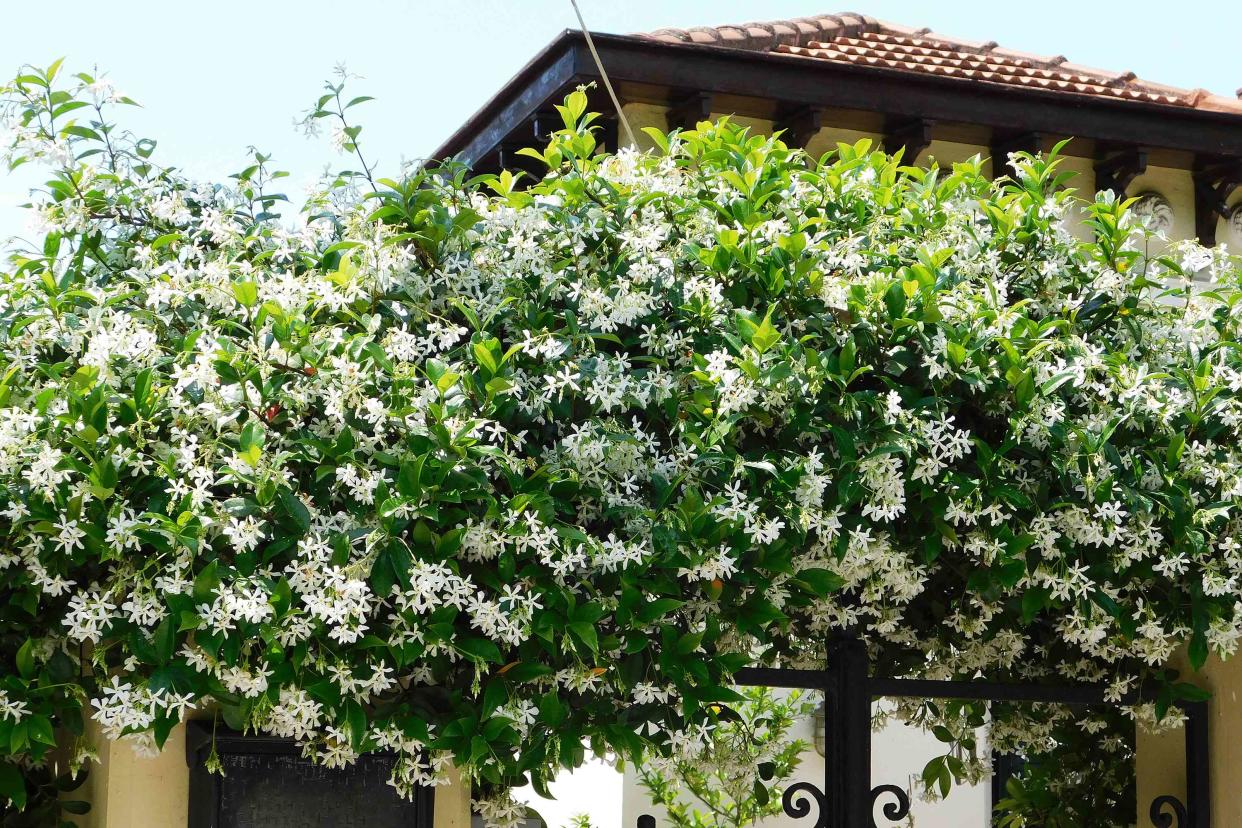
Konstantinos Livadas/Getty Images
Whether you're planning to sell your home soon or simply want to enhance your property's exterior for your own enjoyment, climbing plants can make a significant impact. They offer an easy way to add color, charm, and vibrancy without breaking the bank.
Although you might think that growing and maintaining these plants is challenging, you might be pleased to learn that many climbing plants are easy to grow and require minimal maintenance. Here are five climbing plants that can boost your home's curb appeal.
Related: 9 Easy-to-Grow, Flowering Plants to Elevate Your Home's Curb Appeal
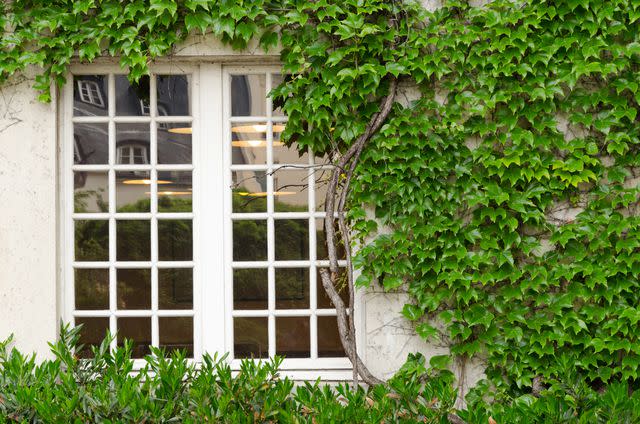
Getty Images
Ivy
It’s hard to go wrong with a timeless beauty like ivy. “Ivy is one of the best hanging plants for both novices and experts. It stays thick and green year after year. Even during the winter months when almost everything dies, Ivy stays green and lovely,” says Bliss Bendall, NYBG-certified horticulturist.
She tells me there are hundreds of varieties of ivy in many shades of green including lush hunter green English ivy and variegated Algerian white and green ivy. “One of the best things about ivy is that it doesn’t take that long to establish and starts to grow heartily almost right away. Ivy, like most vines, can be trained on a trellis or almost any structure to guide the ivy to grow however you’d like it. It can even cover roofs and entire facades of structures.”
This plant is also low maintenance. “As long as the soil it’s planted in is fertile and porous (non-clay soil) it hardly needs any maintenance for years to come. It can create a privacy screen, which for adds an elegant and very sophisticated landscaping element as well as a practical solution. There’s pretty much also a variety of ivy for every temperate growing zones 1-9 in all 50 states,” she explains.
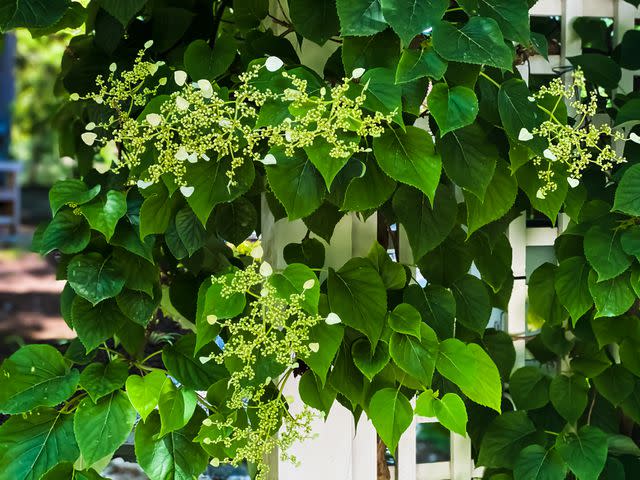
Getty Images
Climbing Hydrangea
When you think of beautiful flowers, one of the first that comes to mind is probably the hydrangea. Also keep in mind the climbing hydrangea. Not only is it fast-growing, but it's also deciduous, providing shade on hot summer days while allowing sunlight through during the winter, which can help save energy. Best of all, it can tolerate a range of temperatures—from the freezing winters of the Midwest to the humid conditions of the South.
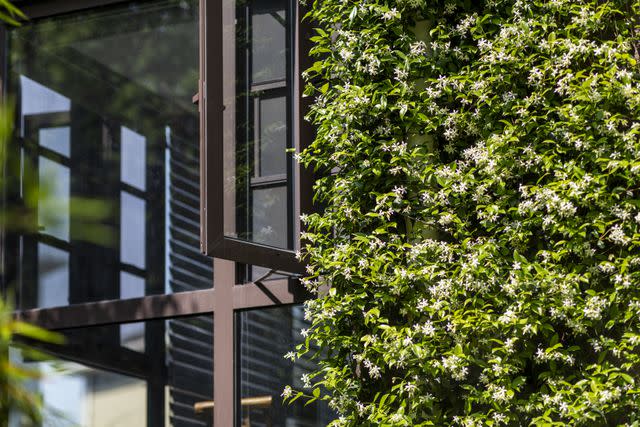
Getty Images
Star Jasmine
Star jasmine is another fantastic choice. This plant features lush green leaves and star-shaped flowers, making it perfect for porches, patios, and any space where you might enjoy a sunset with a cocktail. One of the best things about star jasmine is its fragrant scent, which adds a touch of magic to the atmosphere. Better yet, this plant is low-maintenance, making it a great option for those growing a climbing plant for the first time.
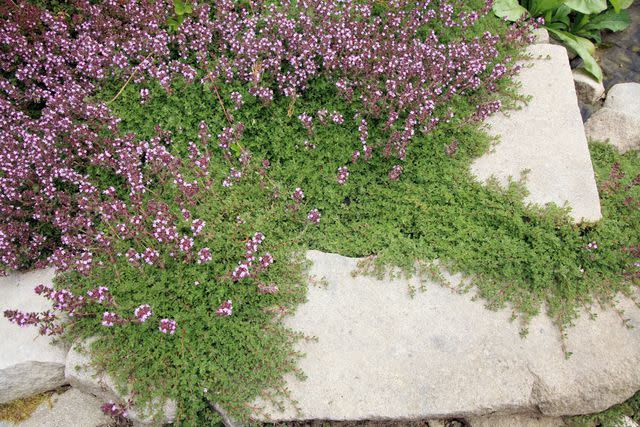
Getty Images
Creeping Thyme
Looking for a vibrant plant to add a touch of color to your yard? Consider creeping thyme. These perennial herbs are multi-colored with clusters of white, purple, or pink flowers that bloom during the summer months. Not only does this plant smell beautiful, but it’s also edible, making it a great choice for home chefs. Just keep in mind that creeping thyme attracts bees. So, if someone in the home has an allergy, it’s best to go with another option. Creeping thyme is often used as a low-growing ground cover, but it will grow down from the top of low container walls or rock ledges.
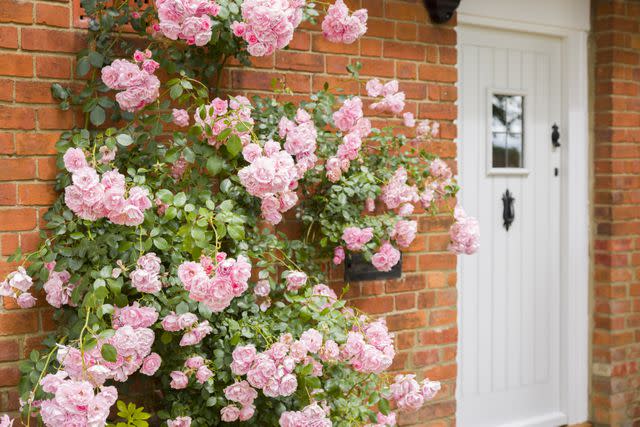
Getty Images
Climbing Roses
Who doesn't love roses? With their aesthetic and delightful scent, climbing roses can instantly elevate a trellis or wall, giving any home a charming, old-school cottage vibe. Keep in mind that these flowers thrive in full sun, so you don't want to plant them in areas that lack adequate sunlight. From May Queen roses to Eden roses, there are many options to choose from. You just need to find the best variety for your zone and property.
For more Real Simple news, make sure to sign up for our newsletter!
Read the original article on Real Simple.
